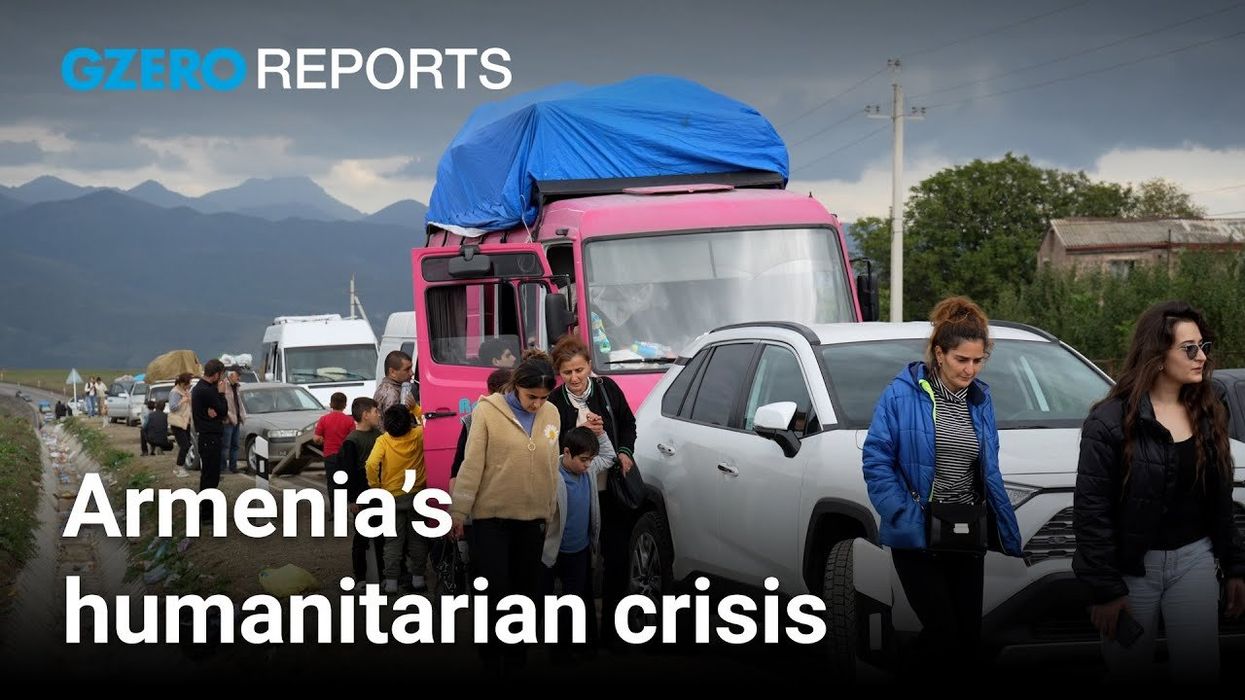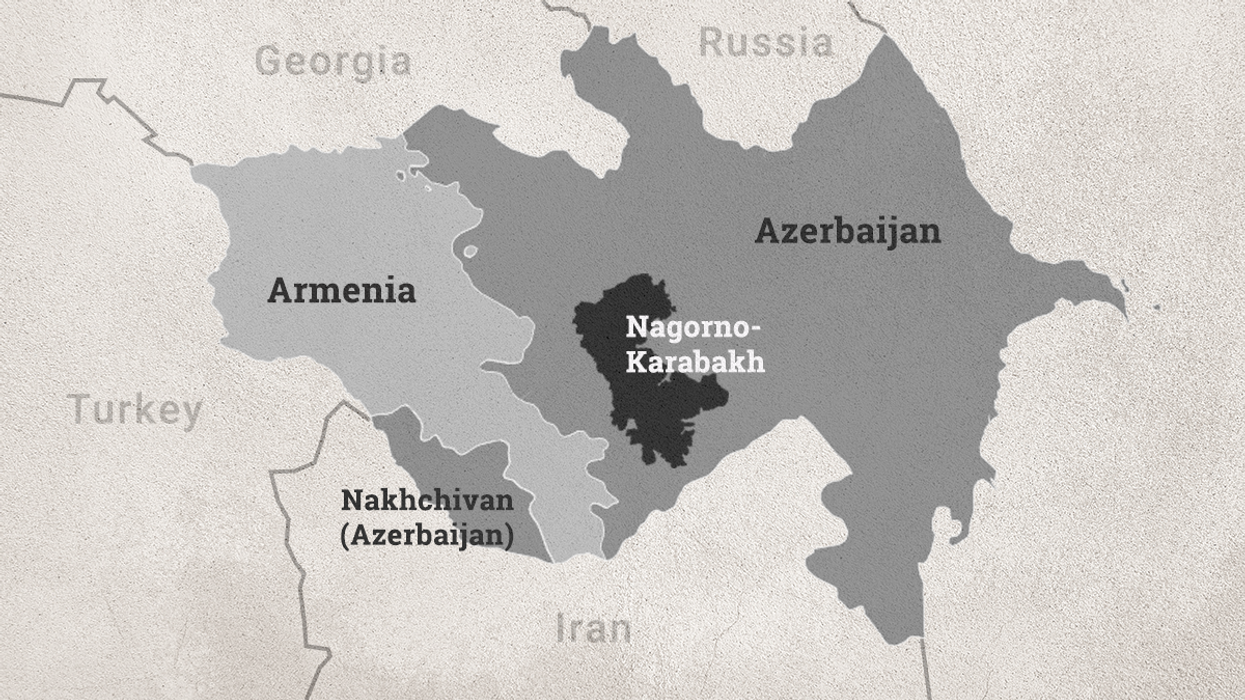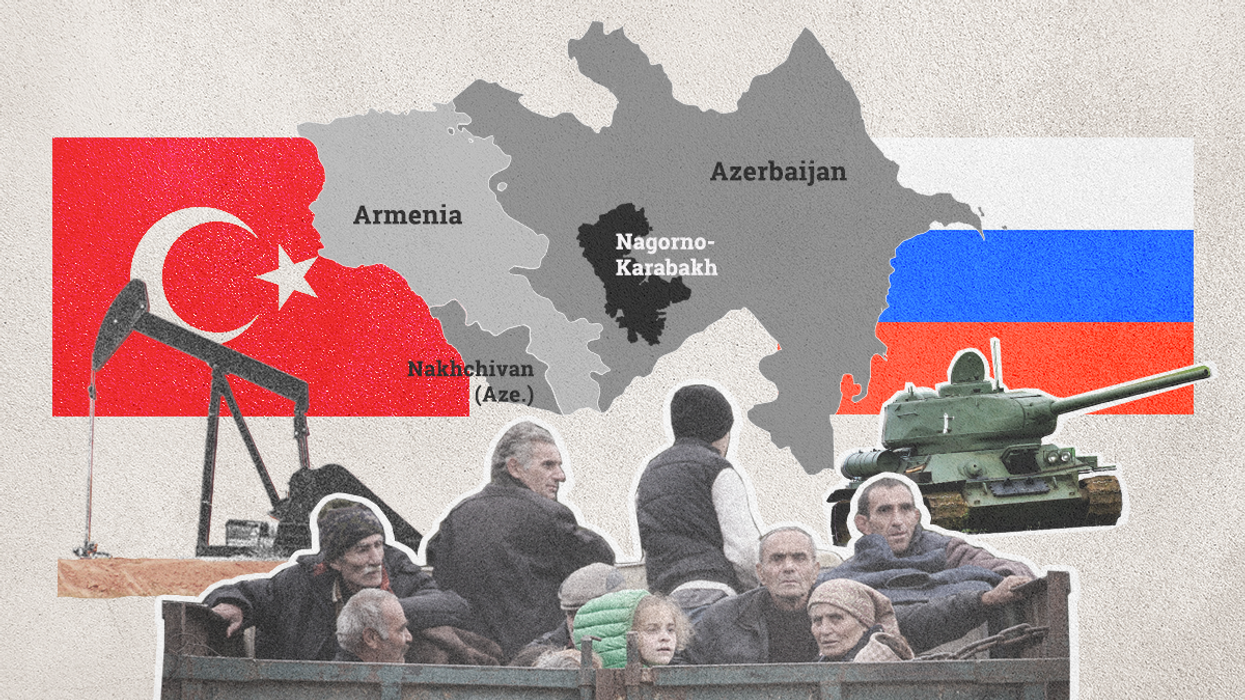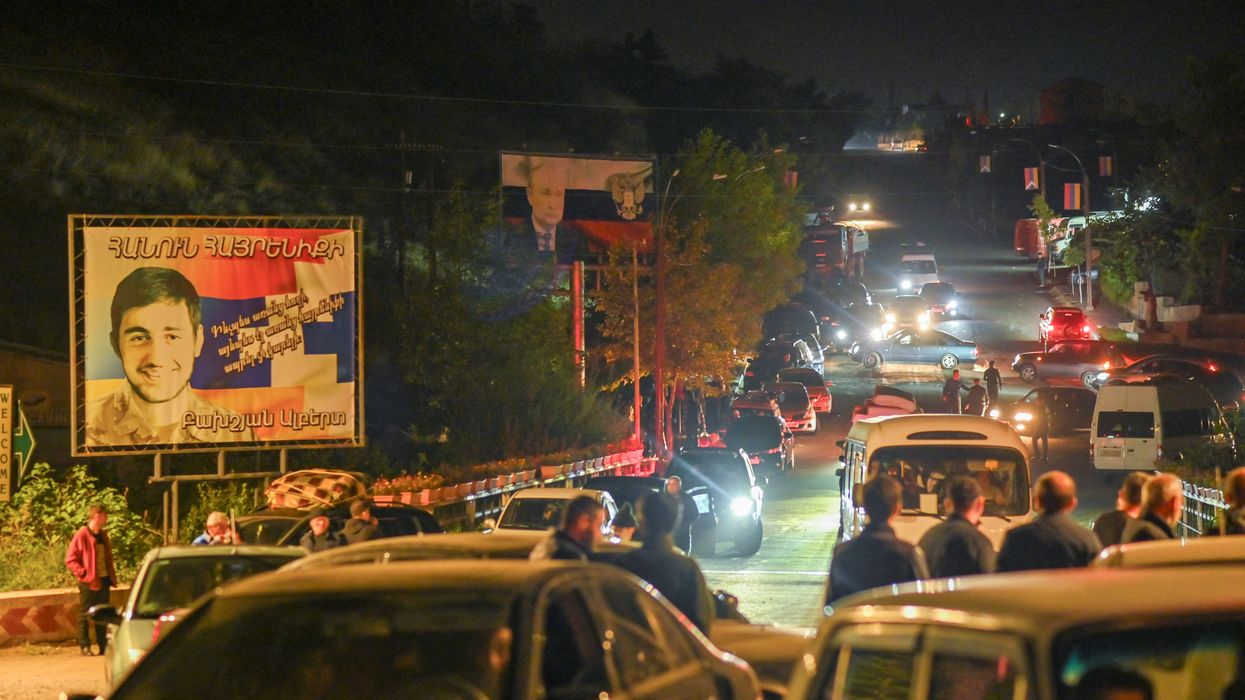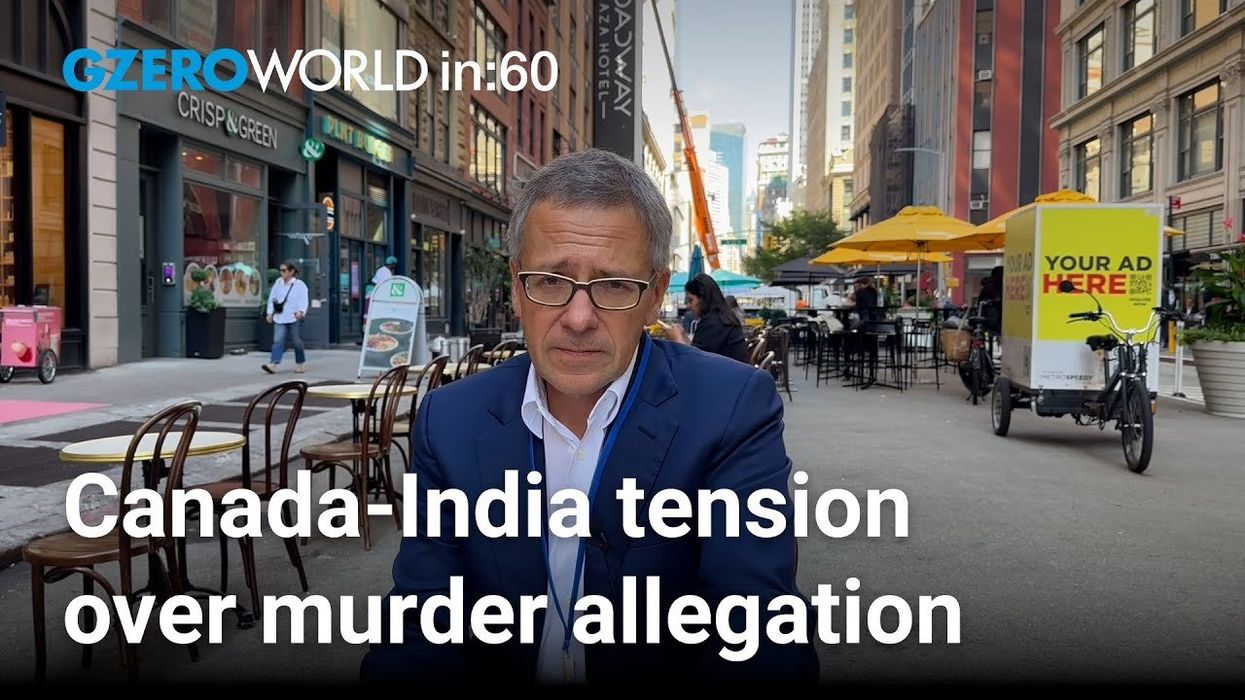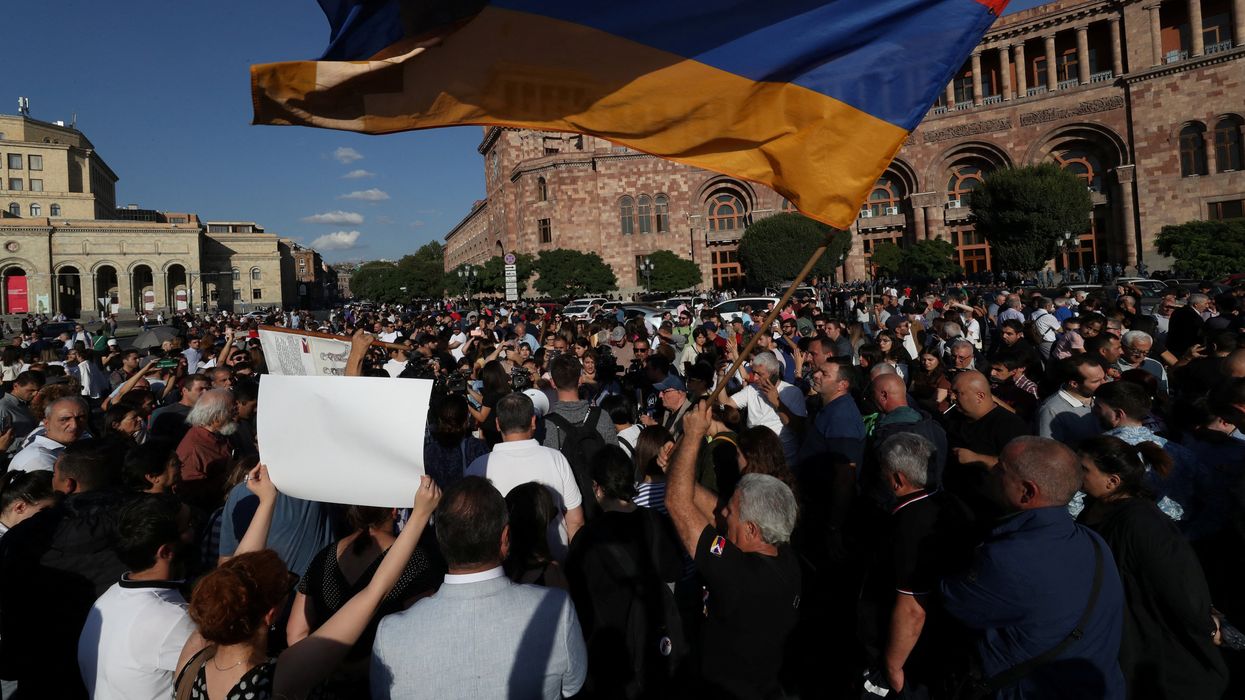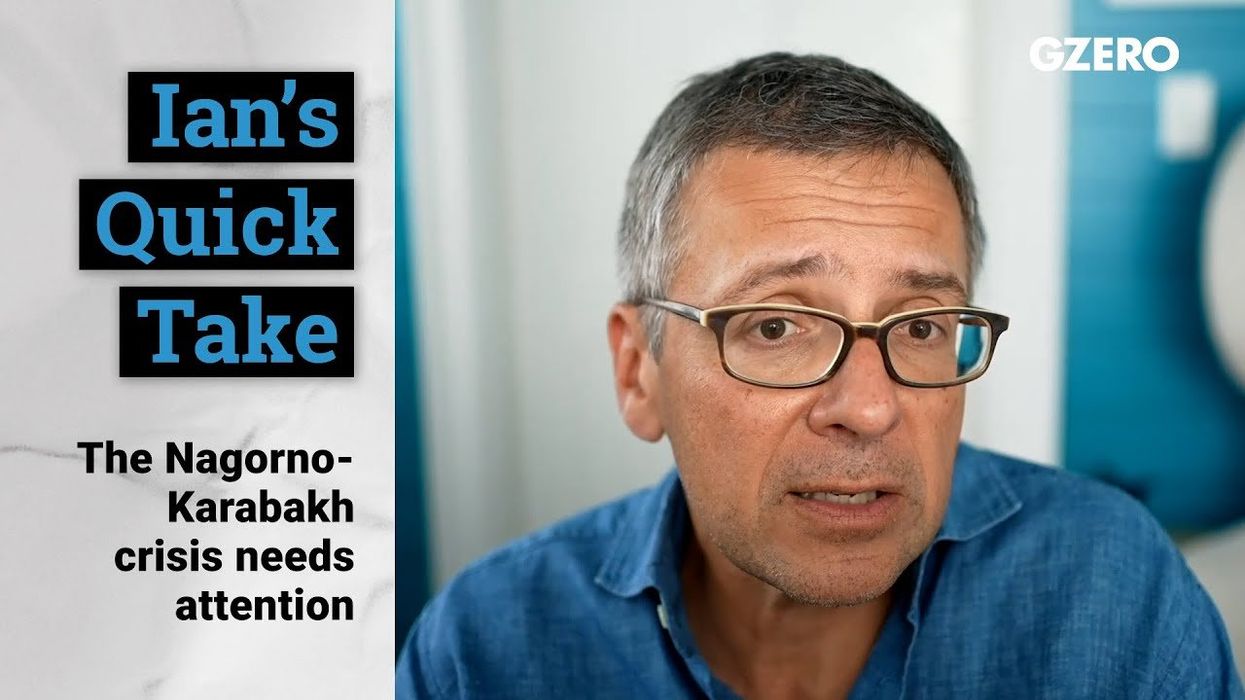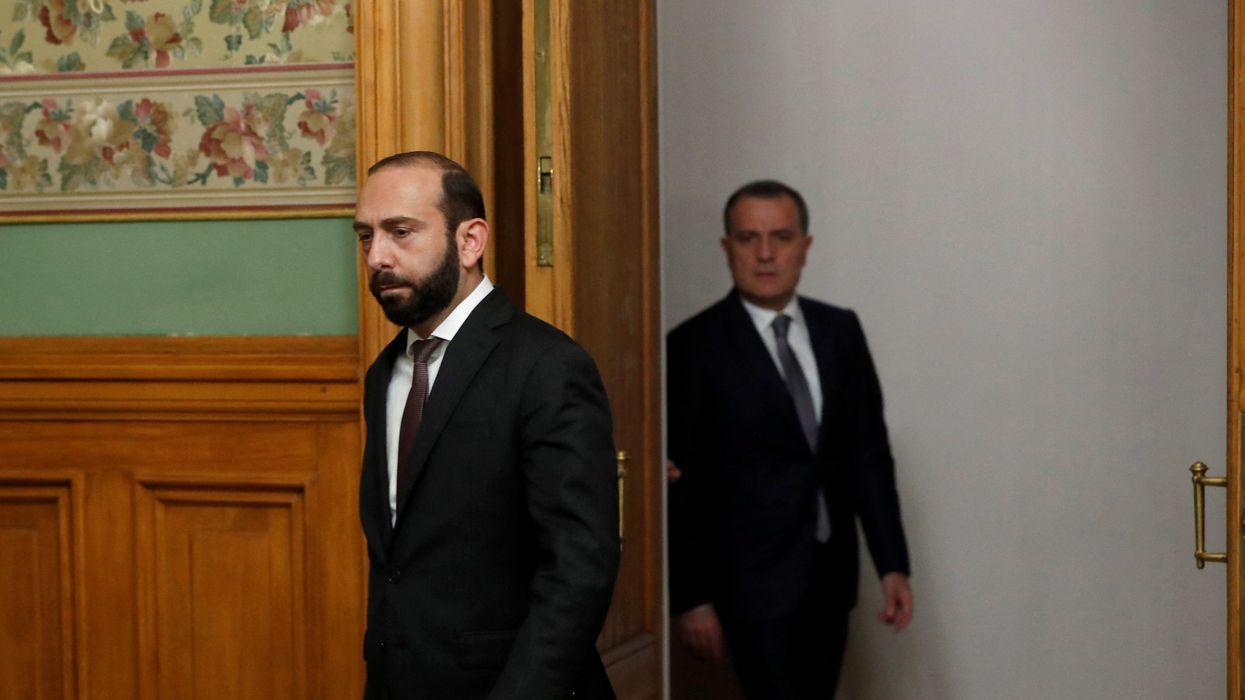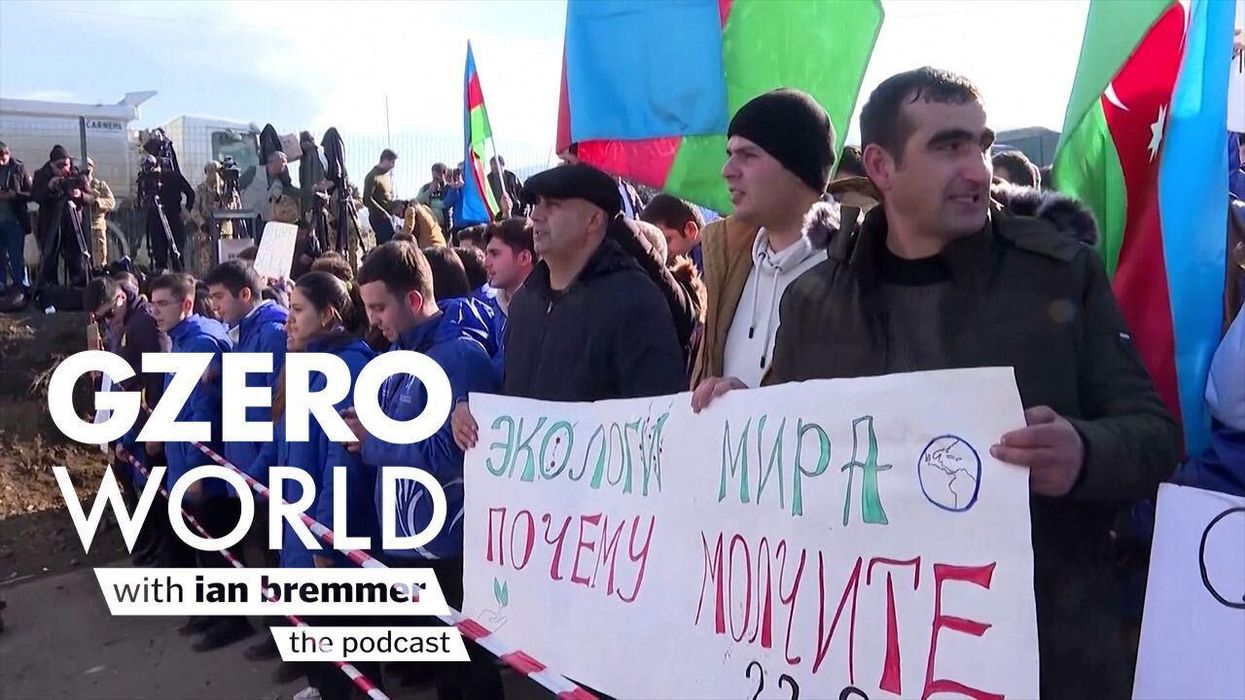GZERO Reports
Armenia’s capital reels from the aftermath of Nagorno-Karabakh & Russia-Ukraine wars
Hundreds of thousands of people fleeing Nagorno-Karabakh and Russia’s Ukraine invasion have come to Armenia, where the future is uncertain. GZERO World correspondent Fin DePencier tells the story of two people who fled to Armenia to escape war—one from Nagorno-Karabakh, the other from Moscow—to see how conflicts playing out thousands of miles away have a huge impact on the thousands of war refugees looking for a place to call home.
Dec 28, 2023
